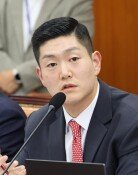More Burdens: Rising Public Utility Charges Next Year
More Burdens: Rising Public Utility Charges Next Year
Posted November. 17, 2005 07:58,
Following the tax rate, various insurance premiums, public utility charges, and transportation fees are all likely to rise.
Almost without any extra real income, there will be higher expenditures, which will place more burdens on households.
If consumption comes around full swing next year, the pressure for overall inflation seems likely to increase.
On November 15, the National Insurance Health Corporation and medical organizations agreed to raise the medical insurance charges by 3.5 percent next year. With this increase, health care premiums automatically rose.
Automotive insurance premiums also will go up. Property insurance corporations and the Financial Supervisory Service (FSS) are currently reviewing ways to increase benefits for car accident casualties. With increases in benefits, car insurance subscribers premiums will rise as well.
In addition, the adoption of surcharges for violators of traffic laws is being reviewed, which will further raise insurance premiums.
Already from this month, property insurance corporations have started to raise premiums at a range between 2.9 to 4.1 percent due to higher automotive maintenance costs (meaning the automotive fixing costs that the insurance companies pay to the maintenance centers).
Various public utility charges will rise as well.
As of November 1, gas fees already increased 5.7 percent (as for wholesale prices). It is said that the increase at a time when demand for heating in the wintertime is more burdensome.
Along with that, the Seoul metropolitan city government raised sewage charges by 35 percent in August, and other local governments are planning to raise the water supply and sewage costs later.
According to the National Statistical Office (NSO), until this October, the public utility charges rose 3.4 percent, the highest increase since an eight percent increase in 2001.
Transit fees on highways and train/taxi fares are expected to jump also.
Last month, the Korea Railway Corporation requested the Ministry of Construction and Transportation to raise the highway transit costs by six percent on average.
Moreover, with the change of the train fare system from the public permission system to the maximum limitation system, if the government imposes a fare cap, the fares will go up.
As for taxi fares, from next year, the current uniform charge system will change into a more flexible one, so the current basic rate of 1,900 won (for Seoul) is likely to rise.
Furthermore, cigarette prices are expected to rise by 500 won by next year.
The government and the Bank of Korea expect next years prices to be difficult to predict.
This year, appreciation of the Korean won stabilized the prices of imports, and a lack of massive natural disasters dropped the prices of agricultural goods, but this cannot be expected for next year as well. The Bank of Korea projects that next years international oil prices could further increase, unexpected incidences like the avian influenza might occur, and the private consumption seems to turn around, so there will be bigger inflationary pressures.
It remains to be seen how the house leasing prices would move next year for some regions, which have risen tremendously after the governments announcement of the August 31 comprehensive real estate measures.
Ki-Jeong Ko koh@donga.com







